From the end of the Civil War to the Stock Market crash of 1929, what was happening in Norwood reflects what was happening in the United States, with the US leading they way with policy and reform, and Norwood adopting changes sometime after the US. During the Reconstruction Era, Norwood (or South Dedham) was struggling with Dedham proper, feeling they did not have the best interests of their village at heart. Once they became a town, they began to look at how to grow their tax base of industries and citizens, starting their own little Gilded Age, which leads to many Progressive Era reforms.
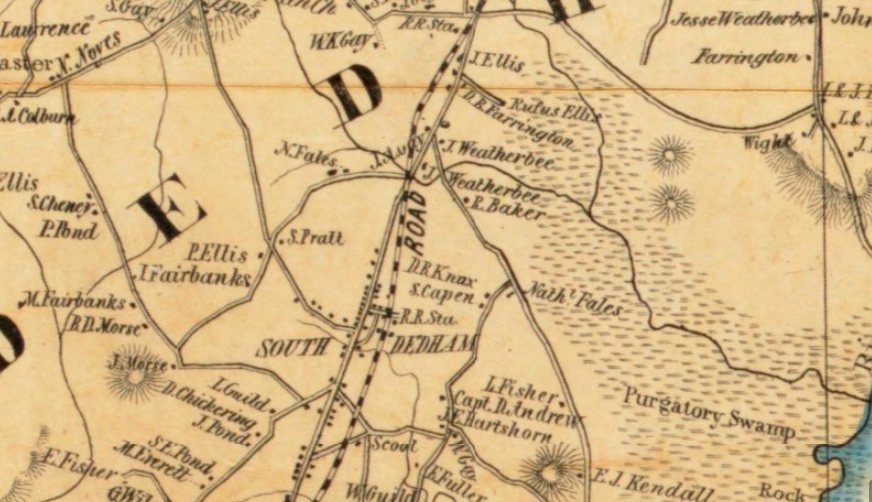
| United States | Year | Norwood, Massachusetts |
| Civil War ends; Reconstruction begins, with the U.S. looking for ways to unify a divided country. | 1865 | The future Town of Norwood was then known as the village of South Dedham in the Town of Dedham, Massachusetts. |
| Gilded Age begins, bringing a second era of industrialization characterized by rapid growth in new communications and transportation technologies and business and government corruption. | 1868 | |
| 1872 | After years of struggling for local autonomy and town resources, the village of South Dedham breaks from the Town of Dedham and establishes the Town of Norwood. | |
| Panic of 1873, a financial crisis leading to an economic depression. | 1873 | The New York & New England Railroad open their car shops in Norwood. |
| 1876 | The New York & New England Railroad open their car shops in Norwood. | |
| Reconstruction Era ends | 1877 |
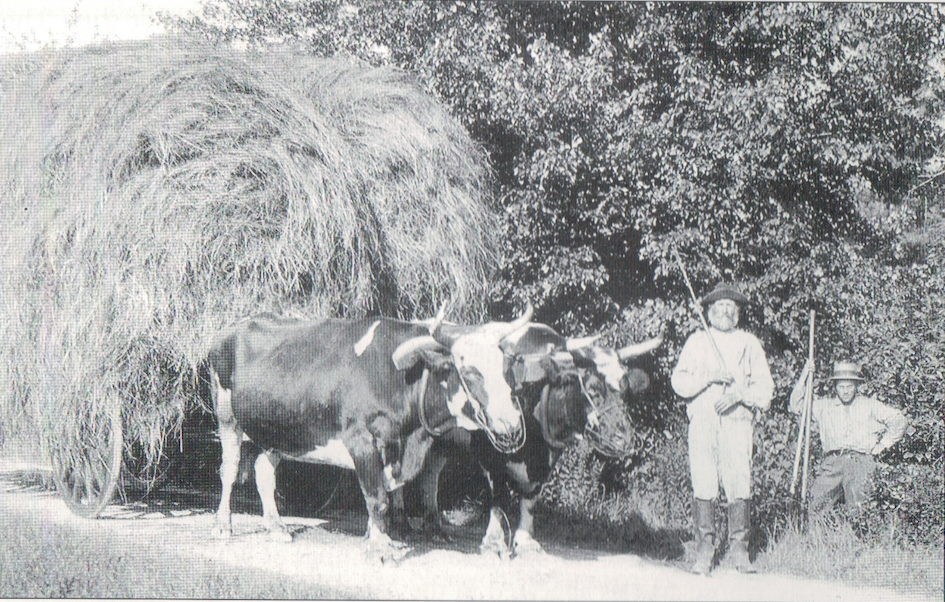
| Gilded Age ends; Progressive Era begins, characterized by tremendous amount of economic, social and political change. | 1890 | Norwood’s populations reaches 3,733 |
| Sherman Antitrust Act, a federal act prohibiting companies from forming monopolies, is passed. | 1891 | Norwood forms a committee to discuss growth opportunities for the town. |
| 1893 | Growth committee evolves into the larger Norwood Business Association, which makes the deal to create the Norwood Press; the Security Manufacturing Co., opens. | |
| 1894 | Norwood Press opens. | |
| 1895 | The Security Manufacturing Co., changes name to Holliston Mills. | |
| 1897 | E. Fleming & Co., bookbinders joins the Norwood Press; Plimpton Press opens in Norwood. | |
| 1900 | Norwood Women’s Club is established and begins many helpful programs to the citizens of Norwood. | |
| President McKinley is killed and Theodore Roosevelt becomes one of America’s most progressive Presidents. | 1901 |
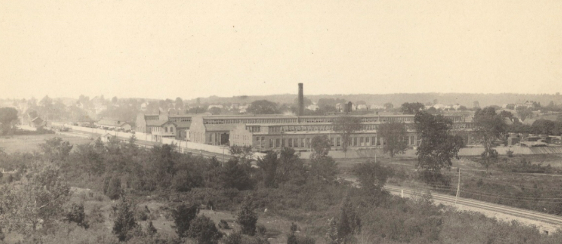
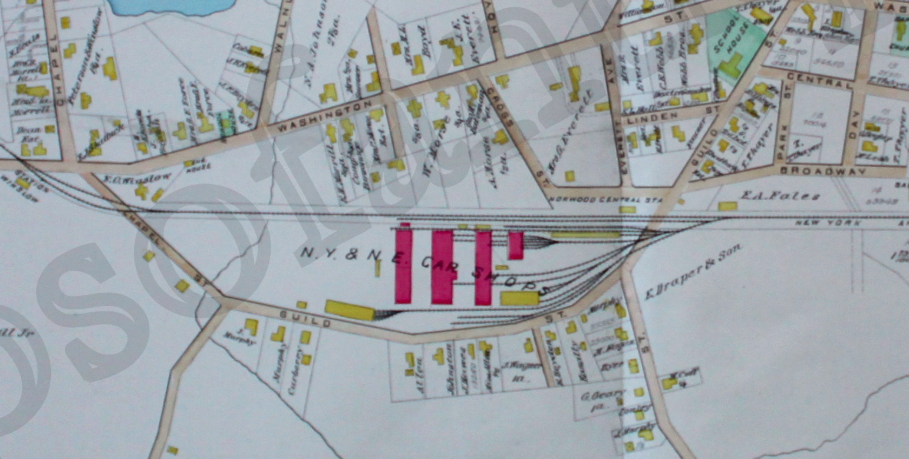
| 1903 | Railroad “car shops” leave Norwood | |
| 1906 | Visiting Nurse program begins; Norwood Civic Association opens; and Printers in Norwood strike for shorter work days. | |
| City-Manager form of government is introduced. Sumter, NC first city to successfully use this system. | 1908 | Eight-hour workday established in the presses. |
| 1910 | The First Church of Norwood establishes Mrs.May Millett as “Friendly Visitor” Norwood’s population is 8,014. | |
| Frederick W. Taylor publishes his book 1911 Principles of Scientific Management. His style of management is known as “Taylorism.” | 1911 |
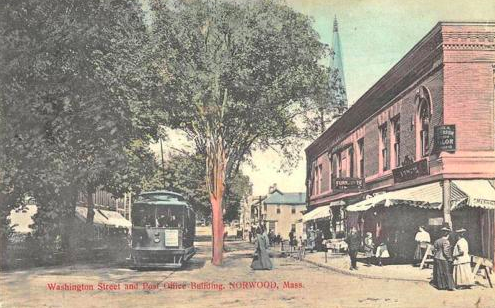
| 1915 | Norwood writes new charter establishing a city-manager style of government. George Willett is first town manager. | |
| American officially enters WWI | 1917 | Over 200 multi-family homes have been built in the Flats; Jane C. Williams publishes an article, and begins to speak on the benefits of “Taylorism.” |
| Global Influenza (The Spanish Flu) Outbreak. | 1918 | Local influenza outbreaks led to illness and death in Norwood, causing organizations to rally together to respond to the crisis. |
| The Progressive Era ends. The 19th Amendment is established, giving women the right to vote. | 1920 | Norwood’s printing industries enter into their most successful decade. Norwood’s population is 12,627; Henry P. Kendall serves as president for the Taylor Society. “Taylorism” |
| 1925 | Women’s Community Committee starts a service to help needy. | |
| Stock market crash. (a financial crisis that began the Great Depression) | 1929 | This starts a slow decline in business for Norwood’s printing industries, which continues to decline through WWII and into the 1950s. |
Back to Exhibit Home Page –>
This Day in Norwood History-June 10, 1893-Three Printing Firms Offer to Relocate to Norwood, Form the Norwood Press
Norwoods Opportunity More Business In Sight The Time To Act Is NOW! Norwood has been anxious for some time to increase its business enterprises and taxable property. It has good facilities for growth in this respect, and its public-spirited citizens…
Women on the Front Lines
There were women who worked in the printing presses in Norwood. A few had positions in management, but most worked on the floor. Clara Berwick, Jane Williams and Ligia Carlson all worked for thirty years at their jobs. Clara Berwick…
End of an Era
For over eighty years, Norwood’s printing industry was an important part of the fabric of the town. It not only made the town known as the printing center of the United States, but It provided jobs to thousands of people…
George H. Morrill Company (The Inkworks)
“The enterprise which Samuel Morrill started in a single kettle, producing a few pounds daily, was a pioneer in the manufacturing of printing ink in New England and became on of the first of the large ink makers in the…
Extra! Extra! The Norwood Messenger
The Village Hall. The Ambrose brothers ran their press from this building. (from the collection of the Norwood Historical Society) The Ambrose brothers, Alfred (1866-1924), Willard (1873-1936), and Edward (1876-1898) brought their local newspaper and printing business to Norwood from…





